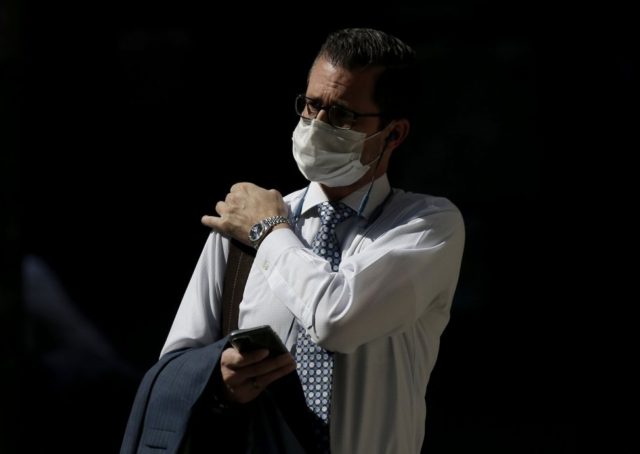July 7 (UPI) — Roughly one in six people with COVID-19 experiences an irregular heartbeat for more than four months after developing initial symptoms, a study published Wednesday by JAMA Network Open found.
This complication was more common among those who had cough, body aches and shortness of breath as their initial symptoms of the virus, the data showed, and diagnosing it may help identify people with ongoing inflammation or immune system issues.
For some, it took, more than four months for people infected with the coronavirus to return to their normal resting heart rate and sleep patterns, based on data from fitness tracking devices.
In addition, energy levels for many, as measured by daily step counts, did not return to normal until roughly 30 days after the onset of COVID-19 symptoms.
People with the disease also took longer to return to normal sleep and energy levels than those with similar symptoms who were not infected with the virus, according to the researchers.
“Continuously tracking physiological changes such as resting heart rate using a fitness tracker may help us to identify individuals who are experiencing ongoing inflammation or autonomic immune dysfunction as a result of their COVID-19 infection,” study co-author Jennifer Radin told UPI.
“Sensor data helps to objectively measure the physiological impact of COVID-19,” said Radin, an epidemiologist at the Scripps Research Translational Institute in La Jolla, Calif.
The findings are based on an analysis of health data collected from 875 adults who reported symptoms of a respiratory illness in the United States using wearable fitness tracking devices or mobile apps.
Of the study participants, 234 tested positive for COVID-19. Participants with COVID-19 took longer to return to their normal resting heart rates, sleep and activity compared with those with respiratory symptoms who tested negative for the virus.
On average, it took study participants with the virus 79 days after the onset of symptoms to return to their normal resting heart rates and 32 days to reach pre-infection step counts, the data showed.
Study participants with COVID-19 did not return to normal sleep patterns until, on average, 24 days after symptom onset.
The findings highlight the effects of the virus on the heart and that many of those infected experience lingering symptoms, or “long” COVID-19, the researchers said.
“COVID-19 can cause an individual’s resting heart rate to remain elevated for two to three months on average,” Radin said.
“Sensors allow us to characterize each individual’s healthy baseline so we can track changes associated with viral illness such as COVID-19 and recovery,” she said.

COMMENTS
Please let us know if you're having issues with commenting.